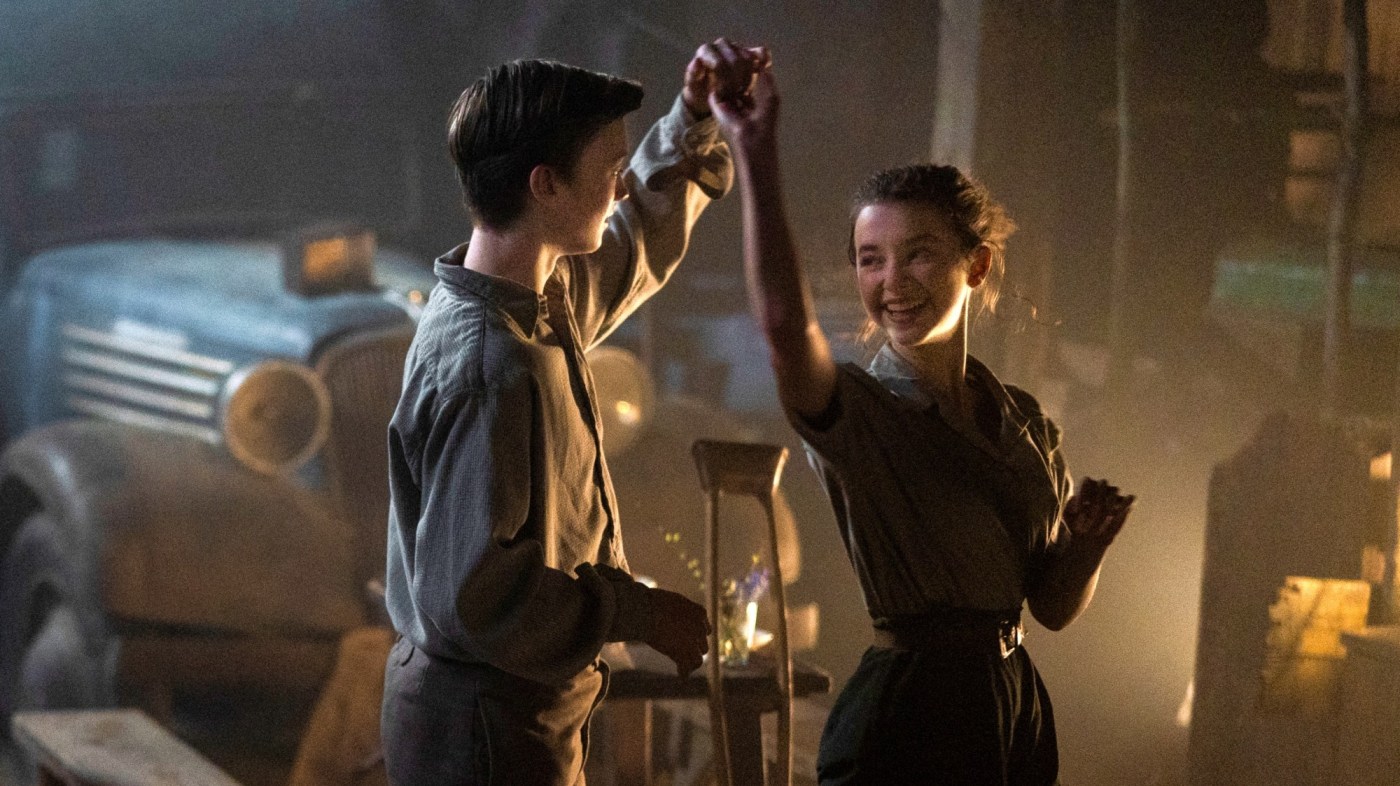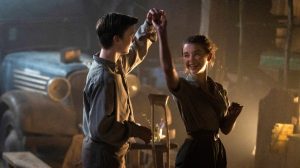
‘White Bird’ review: Follow-up a ‘Wonder’ of a different kind
Perhaps it gets you in the door, that the new film “White Bird” can be referred to as both a sequel and prequel to the emotionally nourishing 2017 film “Wonder.”
In theaters this week, “White Bird” is, like its predecessor, based on a work of fiction by R.J. Palacio. However, it has almost nothing to do with the central character of “Wonder,” which revolves around Jacob Tremblay’s August “Auggie” Pullman, a kind boy with a condition that caused a dramatic —- and traumatic — facial deformity.
Instead, the wildly different, if similarly stirring “White Bird” picks up with Bryce Gheisar’s Julian Albans, who’d bullied Auggie before getting expelled from their New York City private school, Beecher Prep. Primarily, however, this is a World War II story and an engrossing one at that.
We catch up with Julian at his new school, where he looks at photos of Auggie and others from his old haunt before giving what is at most a lukewarm reception to a girl who tries to befriend him at lunch, where he’s been sitting alone. A fellow male student soon comes by to tell him that their mothers are friends and that he’s been tasked to look out for him by his — and informs him he’s sitting at the losers’ table.
At home, Julian finds his grandmother (Helen Mirren), who’s visiting from Paris for a “retrospective” of her artwork.
“It’s a polite way of saying I’m old,” she tells Julian.
Soon concluding that he hasn’t completely learned the needed lesson from his experience at Beecher, she decides to tell him about her time as a Jewish girl in Nazi-occupied France, a tale she rarely shares.
Helen Mirren and Bryce Gheisar appear in a scene from “White Bird.” (Courtesy of Lionsgate)
And here we have the beginning of the bulk of “White Bird,” anchored by an almost entrancing performance by Ariella Glaser as Sara Blum, the younger version of Mirren’s character.
Related Articles
Paul Reiser, Colm Meaney reveal ‘The Problem With People’
Joaquin Phoenix, Lady Gaga right in tune for ‘Joker’ sequel
‘Saturday Night’ review: Skimming the surface of the very first ‘SNL’
Ronan shines in uneven alcoholism drama ‘The Outrun’
‘Joker: Folie à Deux’ sequel bleak & boring
At this substantial flashback begins, the teenage Sara, who likes to sketch in a notebook, has no real concerns beyond her clothes and the goings on with friends Mariann (Selma Kaymakci) and Sophie (Mia Kadlecova). After all, even as the Nazis take control of France, it seems as though the area where her family lives, the lovely French village of Aubervilliers-Aux-Bois, is a safe zone.
That mirage quickly vanishes.
The Nazi occupation leads to an argument at dinner in Sara’s upper-middle-class home between her mother, Rose (Olivia Ross), a math teacher, and her kind and protective father, Max (Ishai Golan), about the precise level of danger they face.
Soon enough, Nazi soldiers arrive at Sara’s school with a list of names of Jewish students they are to take away. School personnel, including Pastor Luc (Stuart McQuarrie) and Sara’s teacher Mademoiselle Petitjean (Patsy Ferran), attempt to hide them, insisting these boys and girls did not show up for school on this day. However, thanks to a student — Jem Matthews’ Vincent, whom the viewer will continue to loathe — that plan fails.
Fortunately, Sara benefits from the kindness of another boy, Orlando Schwerdt’s Julien Beaumier, who helps her flee the school. She barely knows him; Julien has difficulty walking as a result of having had polio, and her friends teased him and called him “Tourteau” (“The Crab”), which is the only name Sara associates with him, she realizes.
Nonetheless, with the blessing of his parents, Vivienne (Gillian Anderson, lending some gravitas to the proceedings) and Jean Paul (Jo Stone-Fewings), Julien hides Sara in the family barn, warning her to stay out of the sight of a couple of nosy neighbors.
Gillian Anderson portrays Vivienne in “White Bird.” (Courtesy of Lionsgate)
Initially filled with guilt for not having treated Julien better at school, she grows closer to the young man, who helps her stay up on schoolwork in the afternoon and with whom she shares adventures in the barn fueled by their combined imagination in the evening.
Of course, danger never resides far away from Sara and her brave hosts.
In fact, one of the harshest critiques one can levy on “White Bird” is that you always see that danger coming, the adaptation by Mark Bomback (“War for the Planet of the Apes”) possessing very predictable story beats. (Also, the resolution to one tense scene late in the film is, well, just a bit much, even if the seeds for it are plenty early on in the story.)
And still, in the hands of director Marc Forster (“Finding Neverland,” “Christopher Robin”), “White Bird” is impactful all the same, a film that manages to mine more than its fair share of joy from a dire situation.
Schwerdt (“True History of the Kelly Gang”) deserves plenty of credit for that, as well, as you can’t help but experience the joy Julien feels to have this girl in his life. Every moment with Schwerdt and Glaser (“Radioactive”) together as Julien and Sara is a treasure, especially as you suspect those moments cannot last.
Another noteworthy contributor behind the scenes is producer Todd Lieberman, a Northeast Ohio native who spoke before an advanced screening of the film at Cedar Lee Theatre in Cleveland Heights.
Rated PG-13, “White Bird” certainly isn’t appropriate for very young viewers. For those a bit older, though, it could serve as a reasonably gentle introduction to what remains one of the most significant — and horror-filled — chapters of the world’s history.
This tale need not serve as a lesson for Julian Albans alone.
‘White Bird’
Where: Theaters.
When: Oct. 4.
Rated: PG-13 for some strong violence, thematic material and language.
Runtime: 2 hours.
Stars (of four): 3.


